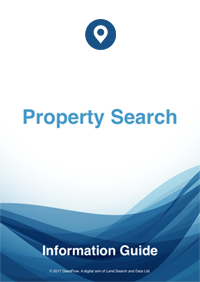Getting Deeds from Land Registry
Contents
Article Summary
This article draws a distinction between Land Registry Ownership Documents and Property Deeds, which many people confuse with each other. It explains the contents of each and the correct searches to use to obtain copies of them.
Many people understand "Property Deeds" to mean different things
Property Deeds, House Deeds and Associated Documents are the documents that are created by solicitors or conveyancers when dealing with a property purchase or sale. They embody the terms of the transaction but since land registration became compulsory throughout England and Wales in 1990 the Deeds are no longer authentic evidence of ownership.
Deeds
Deeds comprise a variety of documents that have been duly signed and executed as a formal and binding legal contract. They are composed to deal with a wide variety of purposes and there are therefore a wide variety of Deed types, e.g.
- Conveyances
- Transfers
- Assents
- Deeds of Gift
- Deeds of Trust
- Abstracts of Title
- Epitomes of Title
- Wayleave Agreements
- Deed Variations
- Assignments
Some of these documents are very long, and some are handwritten. Not all of these Deed types are found in every property transaction, but they are created whenever there is a purpose for them, e.g. where restrictive covenants need to be created that will bind the new and subsequent owners.
The primary Deeds are those that actually transfer ownership of the property from one person to another. In the past they were called conveyances. They have now been replaced with Transfers.
Many Deeds contain a lot of important information and the Land Registry helpfully scan copies and retain them digitally, noting the Register that a copy has been made. Copies of noted Deeds can be purchased online and are valuable for the additional information they hold
Ownership Documents
These days every property has to be registered when a property is purchased (First Registration). The Land Registry create a Title Register and Title Plan, using the Deeds supplied to them on an application for First Registration. These two documents become the Title Documents and provide official evidence of ownership. They contain only the salient details necessary to identify the ownership title owned, omitting the mass of information contained in the Deeds that is not so relevant.
Conclusion
So to answer the question as to how to get Deeds from the Land Registry one first needs to ask whether it is the ownership documents or the actual deed copies that is required. This is important, as our experience demonstrates that most people asking for Deeds are really asking for the ownership documents.
The two choices are:
- Ownership Documents - Title Register and Title Plan
- Copies of the Associated Documents - Associated Documents Search
Title Register
The Land Registry Title Register holds data relating to the property ownership, purchase price, mortgage, tenure, covenants, rights of way, leases and class of title.
£19.95Title Plan
The Title Plan shows an outline of the property and its immediate neighbourhood, and uses colours to identify rights of way, general boundaries and land affected by covenants.
£19.95Associated Documents
Deeds creating Restrictions, Covenants, Easements, etc. are often kept digitally by the Land Registry and made available for sale due to their invaluable detail and content to assist in further understanding the Restrictions, etc.
£29.95


